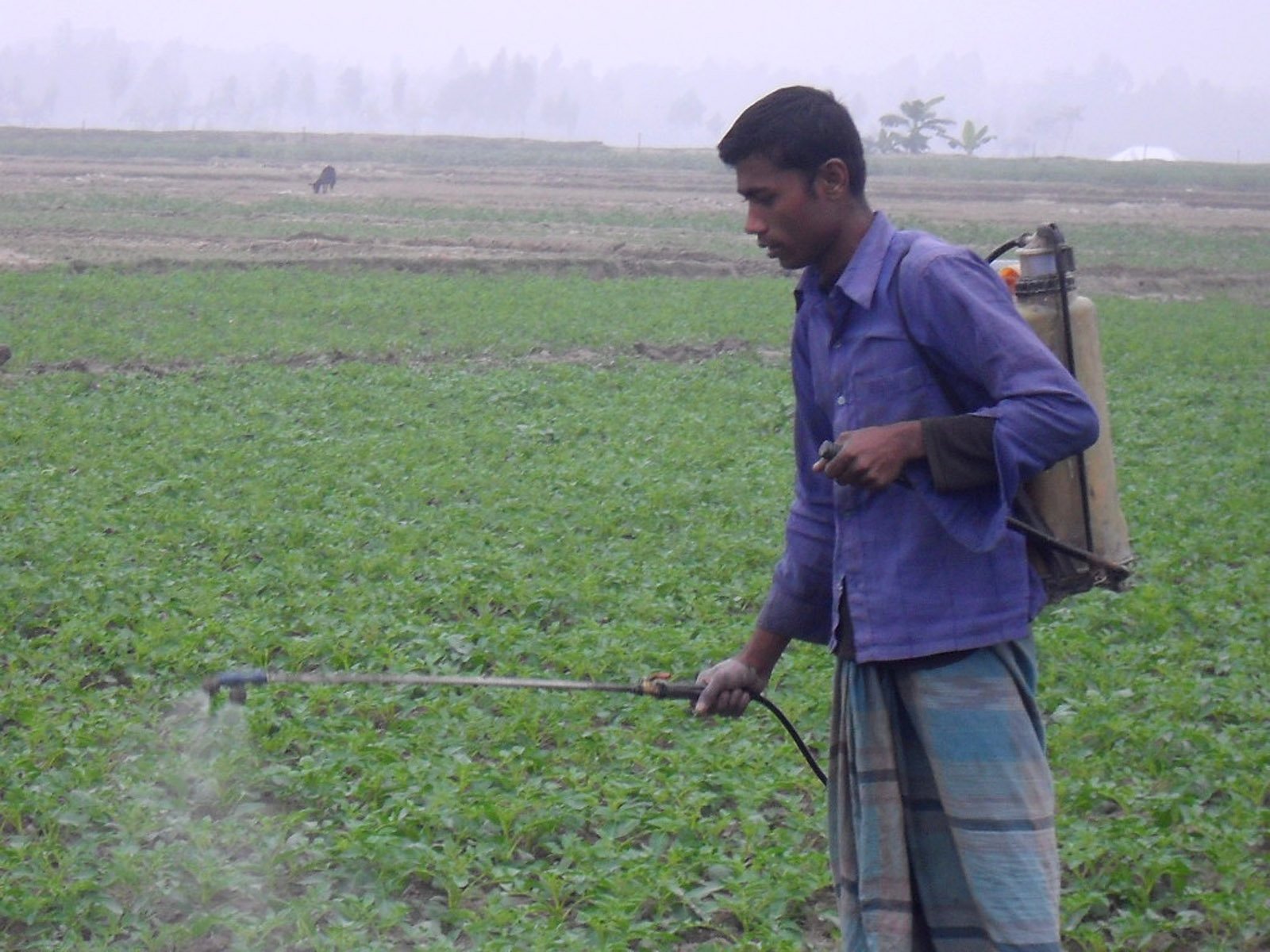The 2009 Health Bulletin, which compiles health statistics from 2008, recorded 7,438 pesticide-related poisoning deaths at more than 400 hospitals nationwide amongst men and women aged 15-49.
Of the deaths, direct pesticide poisoning accounted for 8 percent of the fatalities, preceded only by respiratory failure at 11 percent, said the bulletin.
The report was released in December 2009; the previous year’s Health Bulletin did not cite any pesticide-related poisoning deaths.
Muhammad Abul Faiz, professor of medicine at Dhaka’s Sir Salimullah Medical College, said that of the 933 poisoning cases admitted to that facility in 2008, 38 percent were due to pesticide.
The use of chemicals for growing vegetables was a major factor in the pesticide-related deaths, said Faiz, previously director-general of health services for the government.
"Farmers apply pesticides on their crops without taking proper protective measures. They expose themselves to highly poisonous pesticides. They inhale substantial amounts of the pesticides they spray to kill insects in their crops," Faiz told IRIN.
That is bad news in a country where 75 percent of the civilian labour force - estimated at 56 million - is directly or indirectly engaged in the agriculture sector.
Dangerous recycling
Scientists from the National Institute of Preventive and Social Medicine (NIPSOM) report that many farmers do not dispose of empty pesticide containers after use, instead routinely recycling them.
Sometimes the containers are used for storing food items, underscoring the importance of proper recycling and disposal of used containers, they say.
NIPSOM scientists also say people need to be made aware of poisoning caused by recycling and improper disposal of used pesticide containers. They recommend that pesticide dealers ensure that warnings are explicitly written on containers, so they are not used for the storage of any food item.
But this is a challenge, since the country’s adult literacy rate is only 56.3 percent, according to government figures.
"Considering the widespread illiteracy of our farmers, it should be made mandatory for pesticide producers and sellers to print pictures on pesticide containers showing how to use and dispose of them properly after use," said Mohammad Mahfuzullah, an environmental activist and executive director of the Centre for Sustainable Development (CFSD), a national NGO.
|
Photo: David Swanson/IRIN  |
| Many of Bangladesh's 150 million inhabitants earn their living in agriculture |
Compounding matters is the increasing usage of pesticides in the country, including those which are highly toxic.
According to the most recent government figures available, 37,712 tons of pesticide were sold in the country in 2007, an increase of 145.3 percent on the amount sold in 2001.
In Bangladesh, annual crop losses due to pests and disease are in the range of 10 to 15 percent without any direct intervention, according to the World Bank. Farmers are therefore easily persuaded to use pesticides to protect their crops.
"Pesticides ensure higher yields and longer preservation of food grains and vegetables," said Ghulam Faruk, a Dhaka fruit and vegetable importer.
"What we need is natural methods of pest control, [the] introduction of pest-resistant varieties of paddy and vegetables, and scientific use of pesticides to assist natural methods," he said.
Regulations ignored
Bangladesh’s 1985 Pesticide Rules outline stringent procedures for the registration, import, manufacture, sale, packaging and advertisement of pesticides.
But pesticide importers and traders pay scant attention to these regulations, experts say.
Illiterate farmers are also persuaded by unscrupulous traders and various incentive schemes to buy unregistered pesticide formulations that promise to protect crops against pest attacks and disease.
Meanwhile, suppliers continue to sell many chemical substances banned by the government, as well as chemical compounds such as aldrin and endrin, which are classified as "highly hazardous" by the World Health Organization (WHO).
In addition, many pesticides continue to be sold in the market without names or under false labels, and with no clear warnings or instructions to farmers, contravening the law, according to experts.
ao/ds/ey/cb
This article was produced by IRIN News while it was part of the United Nations Office for the Coordination of Humanitarian Affairs. Please send queries on copyright or liability to the UN. For more information: https://shop.un.org/rights-permissions





